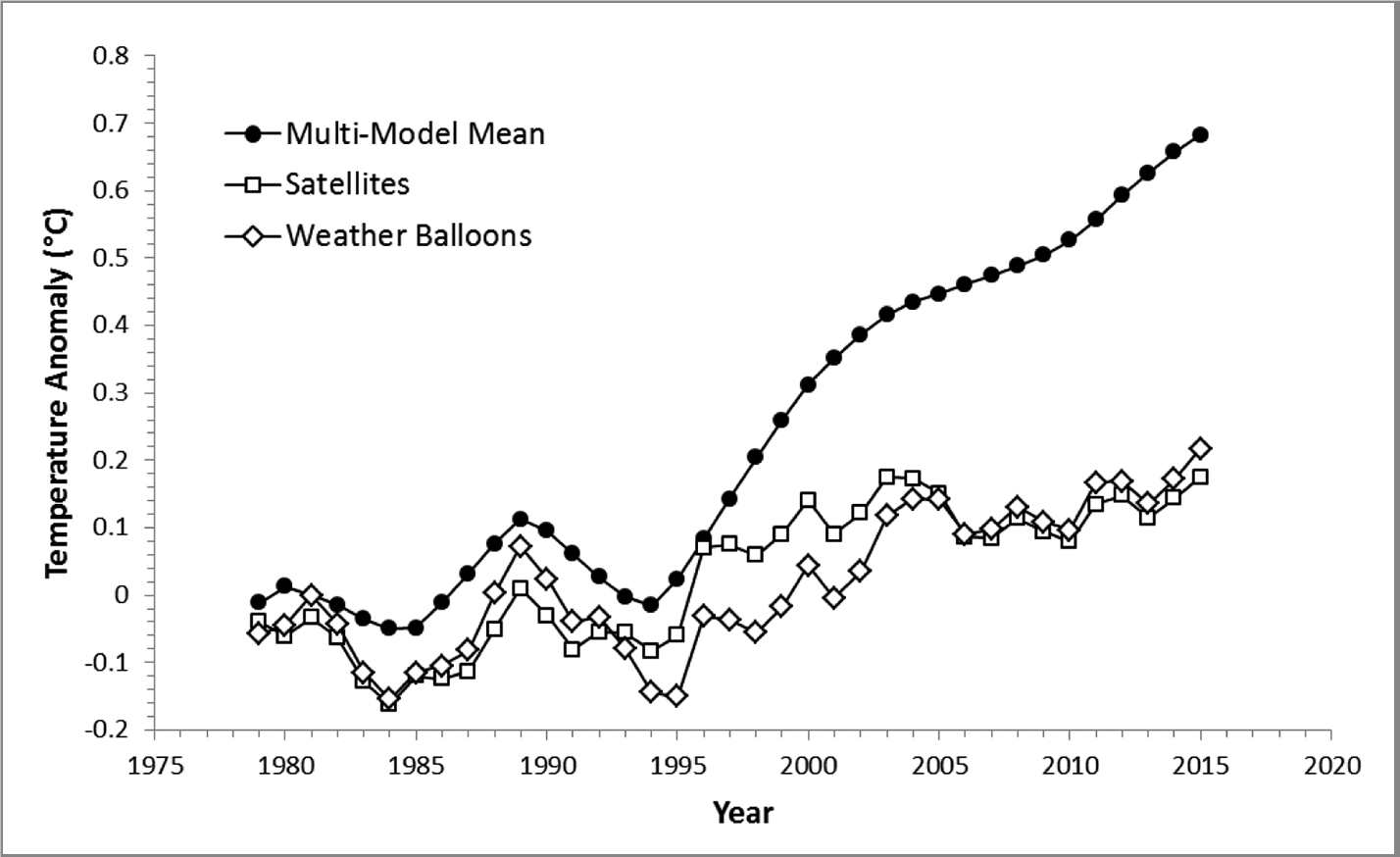
Figure 64.1. Lower-Atmosphere Temperatures Predicted by United Nations’ Intergovernmental Panel on Climate Change (IPCC) Models and Measured by Satellites and Weather Balloons
Climate model bias is naturally selected by government-funded science
An accurate cost-benefit analysis can only be done if there is a reliable forecast for climate change and its specific impacts.
The… federal Interagency Working Group (IWG)… by relying on the output from published general circulation models (GCM) that simulate future climate as carbon dioxide is added to the atmosphere, is saying that those models are sufficient. They are not. The most logical interpretation of the ongoing (and increasing) disparity between the collectively modeled and observed temperatures (as shown in Figure 64.1 [above]) is that the forecast models are simply too sensitive to carbon dioxide changes.
Additionally, Congress should direct that all SCC calculations take into account the massive increase in global food production (valued at $3.2 trillion since 1950) that is a direct result of increasing atmospheric concentrations of carbon dioxide, as well as the nearly global increase in green vegetative matter. The current models used by the IWG to determine the SCC are woefully insufficient on these accounts.
A remarkable finding published in 2016 by the Royal Society, the national academy of science of the United Kingdom, may explain the time and money spent. It shows that the way we reward scientists is producing, in the authors’ words, increasingly “bad science.” A corollary is that, if the federal government suddenly disburses enormous amounts of funding for a given field, as it has for climate studies, then the quality of research will decline significantly.
Climate model bias makes for government-friendly economic analyses
Proponents of a carbon dioxide tax… cite something called the “social cost of carbon” (SCC). The Obama administration’s SCC was generated by a federal Interagency Working Group (IWG) that ignored specific… Office of Management and Budget (OMB)… directives with regard to the determination of the SCC and its use in cost-benefit analysis of federal actions.
“For regulatory analysis, you should provide estimates of net benefits using both 3 percent and 7 percent”—with a discount rate of 7 percent representing “an estimate of the average before-tax rate of return to private capital in the U.S. economy” and 3 percent reflecting the low case. Had the IWG included a 7 percent discount rate as guided by the OMB, they would have arrived at a substantially lower estimate of the SCC—some 80 percent (or more) below the current IWG mean SCC value.
“Your analysis should focus on benefits and costs that accrue to citizens and residents of the United States.” Yet the administration’s IWG reports (and subsequently relies upon) a value of the SCC determined from the accumulation of costs projected to occur across the globe while burying the U.S. domestic costs (which are estimated to be only 7 to 23 percent of the global value).
Climate model bias is used to weaken property rights and build dependence
…the Paris Agreement on climate change… states, “Developed country Parties shall provide financial resources to assist developing country Parties with respect to both mitigation and adaptation in continuation of their existing obligations under the Convention.”
“Continuous and enhanced international support shall be provided to developing country Parties.”
“Developed country Parties shall biennially communicate indicative quantitative and qualitative information related to paragraphs 1 and 3 of this Article, as applicable, including, as available, projected levels of public financial resources to be provided to developing country Parties” [emphasis added].
Climate model bias is used to promote bigger government
First and foremost, Congress should turn down any legislative proposals for a tax on carbon dioxide emissions, erroneously called a “carbon tax” by proponents. Such a tax would be as insidious as the income tax, which began as a very small levy but ultimately evolved into the fiscal and byzantine morass that it is today.
Legislators will never give up an equivalent amount of revenue that they could spend on desired projects. …we can’t “expect three trillion dollars to walk down K Street unmolested” by special interests and lobbies.[1]
- Michaels, Patrick J. and Paul C. Knappenberger. “Global Warming and Climate Change.” Cato Handbook for Policymakers, 8th ed., Cato Institute, 2017, pp. 627-636.